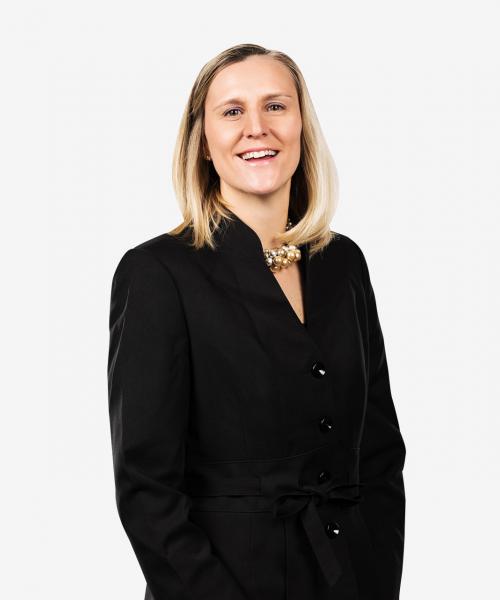DHHS Permits Manufacturer-Sponsored Co-Pay and Patient Assistance Programs for Individuals Enrolled in Exchange Plans
According to a letter sent by Secretary of the Department Health and Human Services (DHHS) Kathleen Sebelius to Jim McDermott (D-WA) in the US House of Representatives on October 30, Qualified Health Plans (QHPs) available to consumers via federally facilitated and state-run health insurance exchanges (Exchanges) are not “federal health care programs” as defined under the federal Anti-Kickback Statute (AKS). In the letter, Secretary Sebelius stated that DHHS “does not consider QHPs, other programs related to the Federally facilitated Marketplace, and other programs under Title I of the Affordable Care Act” to qualify under the definition of “federal health care program” in the Social Security Act (section 1128B(f), codified at 42 U.S.C. § 1320a-7b(f)). As such QHPs and “Basic Health Plans”—to the extent states elect to offer them—can be treated like “commercial” plans by pharmaceutical manufacturers. In other words, pharmaceutical manufacturers can provide co-payment or financial assistance to individuals enrolled in such plans under the same terms and conditions applicable to individuals enrolled in commercial health plans today.
While manufacturer-sponsored Patient Assistance Programs (PAPs) vary, pursuant to such programs, manufacturers of certain brand name drugs offer patients either free or reduced cost drugs and/or financial assistance in obtaining their products. Generally, free drug product is provided to the uninsured, while assistance with cost-sharing obligations is offered to those with health insurance. The provision of such assistance related to individuals covered by Medicare or another federal health care program implicates the AKS because manufacturers are providing something of value to induce beneficiaries to use their products. Specifically, the Office of Inspector General (OIG) stated affirmatively in its Special Advisory Bulletin on Patient Assistance Programs for Medicare Part D Enrollees, published in the Federal Register on November 22, 2005, that “[w]here a manufacturer PAP offers subsidies tied to the use of the manufacturer’s products (often expensive drugs used by patients with chronic illnesses), the subsidies present all of the usual risks of fraud and abuse associated with kickbacks, including steering beneficiaries to particular drugs; increasing costs to Medicare; providing a financial advantage over competing drugs; and reducing beneficiaries incentives to locate and use less expensive, equally effective drugs.” The OIG did recognize that bona-fide independent charities could provide financial assistance with Medicare Part D beneficiaries and those manufacturers could provide Medicare Part D beneficiaries free drug outside of the Medicare Part D benefit such that the PAP's assistance does not count towards a Part D beneficiary's true-out-of-pocket cost (TrOOP).
In addition to OIG scrutiny, commercial health plans have challenged the legality of the provision of cost-sharing assistance provided by pharmaceutical manufacturers to individuals enrolled in their plans. These challenges have been unfruitful thus far, with the Southern District of New York dismissing a suit challenging a co-payment assistance program sponsored by Bristol-Myers Squibb and Otsuka American Pharmaceutical on Racketeer Influence and Corrupt Organizations Act and Robinson Patman Act grounds in June 2013 (See June 6, 2013 Client Alert “Federal Judge Dismisses Challenge to BMS-Sponsored Co-Payment Assistance Program” and May 3, 2013 Client Alert “Court Dismisses Challenge to the Legality of Manufacturer-Sponsored Co-Payment Assistance Programs”).
Given the OIG’s position, manufactured-sponsored PAPs typically “carve out” individuals covered by Medicare or another federal health care program from participation in the PAP. As such, financial assistance with cost-sharing obligations is not available to Medicare, Medicaid, TRICARE or other federal health care program beneficiaries. Given DHHS’s conclusion that QHPs and Basic Health Plans are not federal health care programs, the AKS does not apply and manufacturers will be able to offer cost-sharing assistance for their drug products to individuals enrolled in an Exchange plan in a manner similar to the assistance offered to individuals enrolled in commercial plans today.
While Congress has expressly provided for the federal False Claims Act (FCA) to apply to “any payments made by, through or in connection with an Exchange if the payments include Federal funds,” it does not appear that the provision of cost-sharing assistance by manufacturers to individuals enrolled in QHPs would implicate the FCA in such instance since, according to DHHS, Exchange plans are not deemed to pay claims using federal funds. Rather, QHP sponsors, Navigators and even consumers potentially face FCA exposure related to their receipt and use of federal funds associated with an Exchange or QHP participation, including premium tax credits, cost-sharing subsidies, and Navigator grants.
The Pharmaceutical Care Management Association has announced that it plans to challenge DHHS’s determination that QHPs and Basic Health Plans are not federal health care programs. According to its Chief Executive Officer Mark Merritt, DHHS’s position also could be reversed by a court, perhaps in one of the lawsuits pending by commercial health plans against various pharmaceutical manufacturers involving PAPs or during the course of the OIG’s probe into the improper provision of cost-sharing assistance by manufacturer-sponsored PAPs to Medicare Part D beneficiaries.
The insurance industry group America’s Health Insurance Plans (AHIP) has indicated that it is still reviewing the DHHS letter. AHIP did state that the provision of cost-sharing assistance by pharmaceutical manufacturers “undermines efforts to reward high-quality, cost-efficient care and drives up health-care costs for consumers, employers, and taxpayers.”
Contacts
- Related Industries
